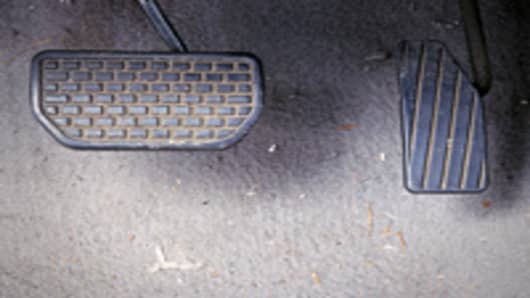Here we go again. One year after the auto industry was hit by parts and components shortages following an earthquake and tsunami in Japan, automakers are scrambling to avoid a repeat of what happened last year.
This time, the problem is caused by a shortage of resin used in the production of fuel lines, brake lines and other engine components. In Detroit Tuesday afternoon, well over 100 executives from the auto industry met to discuss the impending shortage. In the words of one auto-industry veteran, the situation is “not good.”
The resin shortage is a result of an explosion in late March at Evonik Industries, a German-headquartered firm that produces CDT. CDT is a key ingredient used in the manufacturing of PA-12, a substance used in making fuel and brake lines.
What makes this situation troublesome for automakers is the fact the world is already dealing with a shortage of the resin in question.
Auto suppliers are looking at switching to another chemical to make key engine components, but it’s not something that can happen overnight. In fact, making the switch to other coatings for fuel and brake lines would only happen once automakers are certain a substitute chemical can do the job and do it safely.
So where does this leave parts suppliers and automakers? For now, suppliers appear to have enough resin on hand to keep current production schedules. But beyond that, few are sure what will happen.
Increasingly, analysts on Wall Street are talking about some production disruptions. Deutsche Bank analyst Rod Lache says, “Indications are that near-term production disruptions are likely, although it's still too early to determine if it will be a material impact to Q2 production levels.”
As for the major automakers, the situation has them worried, but has not reached the crisis level they experienced after the earthquake and tsunami in Japan crippled suppliers.
“We are monitoring the situation and working with our suppliers,” says Ford spokesperson Todd Nissen. “At this point, we have not had any production disruptions.” Nissen adds that Ford has also not altered its future production schedule.
General Motors has set up a global work team including members of its purchasing department, engineers and suppliers, including the German firm where the explosion occurred. As for potential impact of the shortage, GM says, “It is too soon to predict, since we are still working closely with suppliers to understand complete exposure and determine alternative process materials solutions.”
__________________________
Click on Ticker to Track Corporate News:
- General Motors
- Ford Motor
- Toyota Motor
- Nissan
- Honda Motor
___________________________ Questions? Comments?BehindTheWheel@cnbc.comand Follow me on Twitter @LeBeauCarNews



